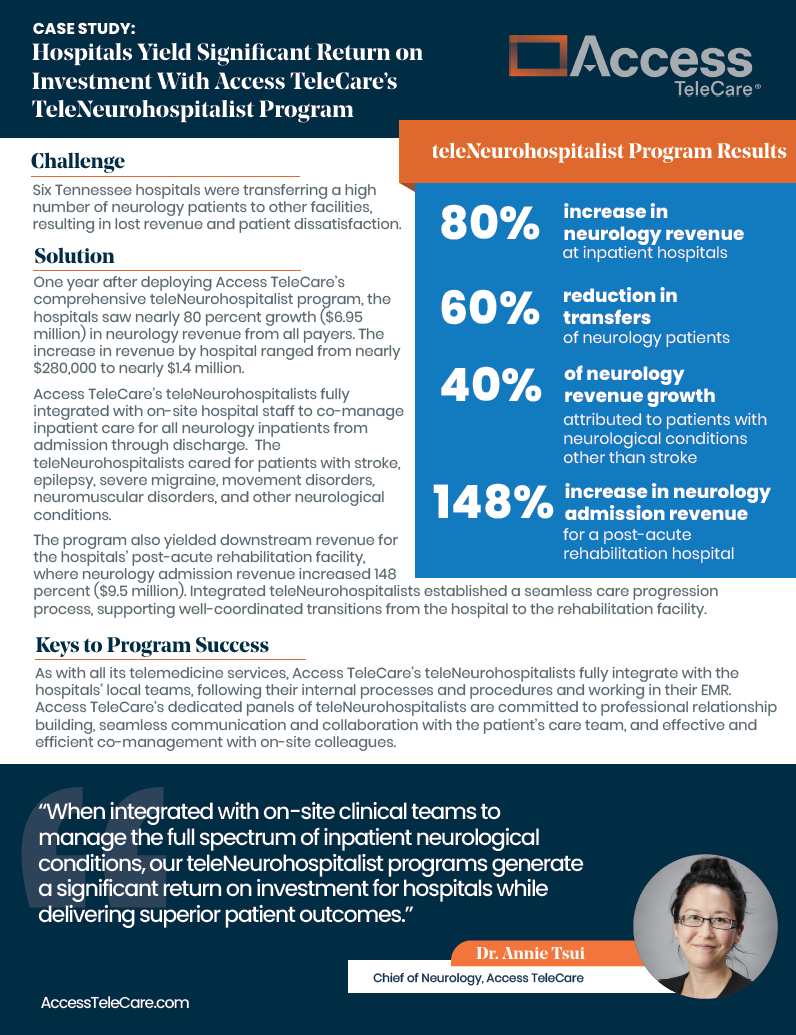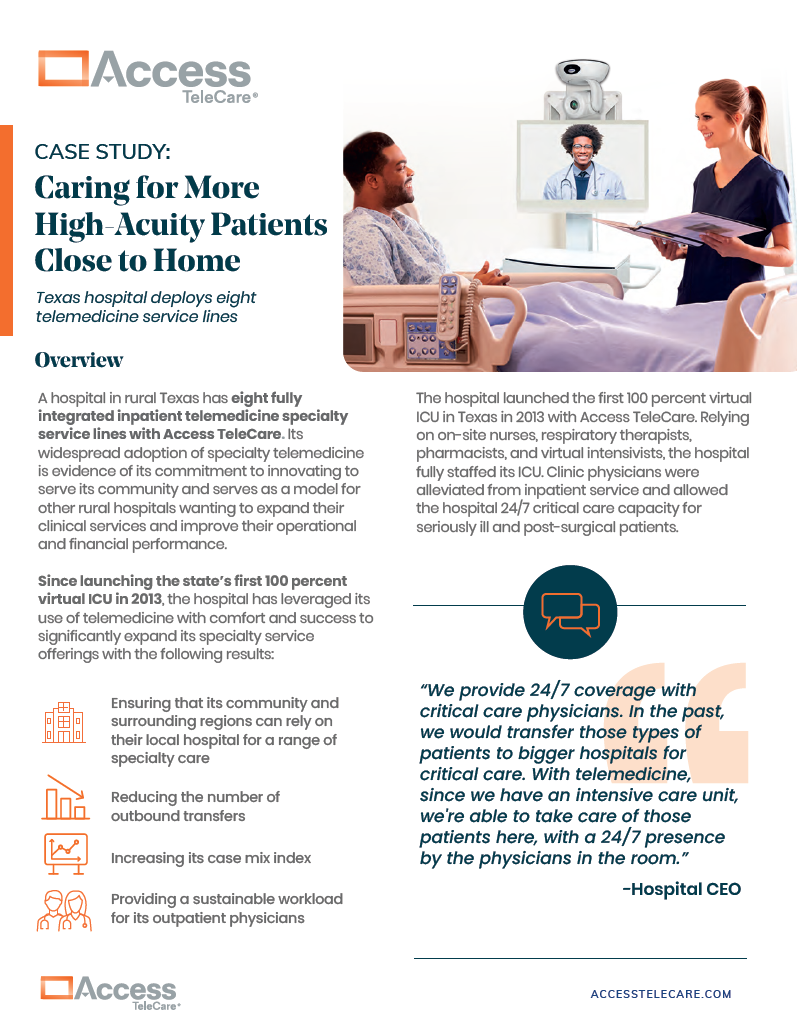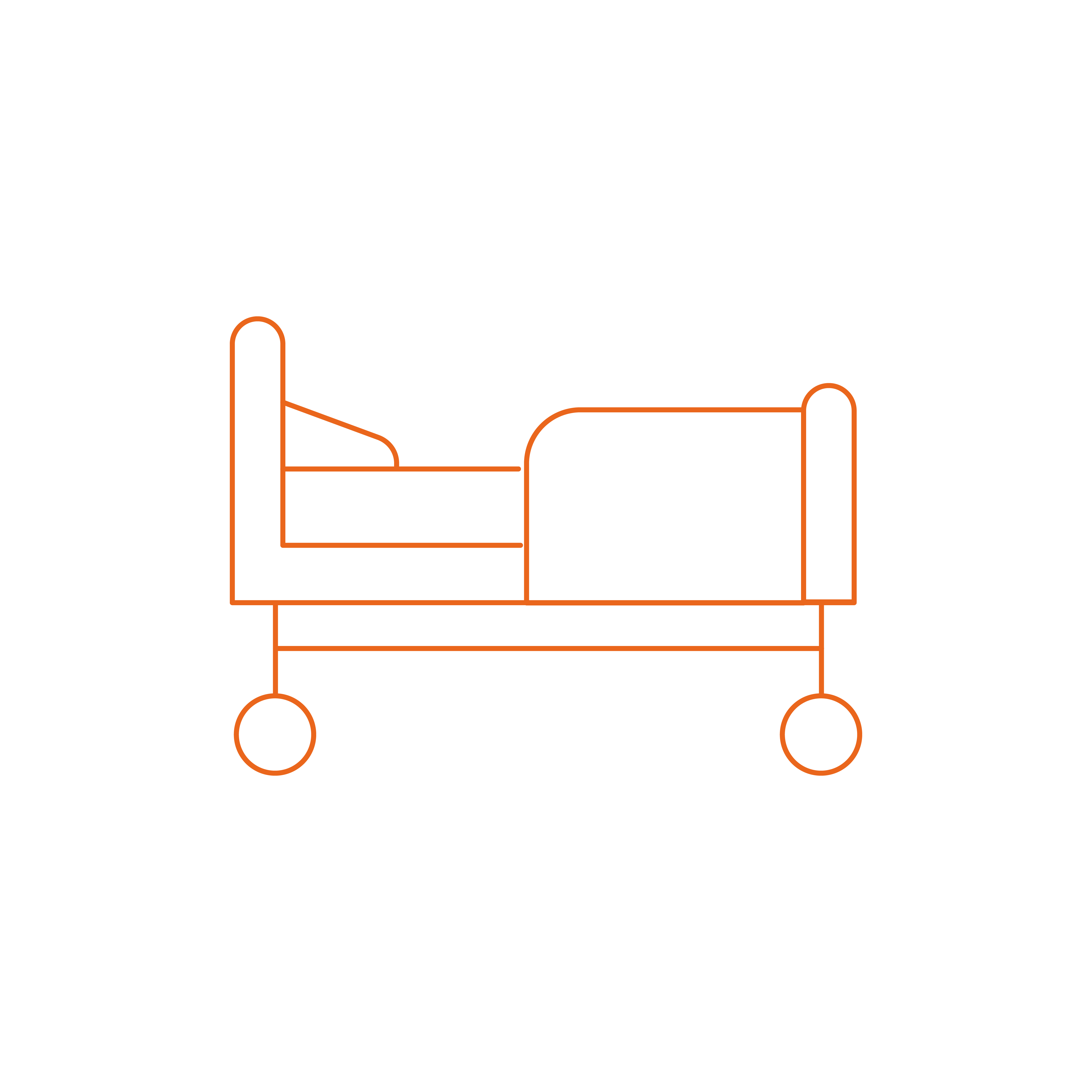Video: Strategies for Overcoming Healthcare Challenges with Telemedicine Experts
For more than two decades, Access TeleCare has operated at the forefront of virtual care delivery, advancing telemedicine as a sustainable, strategic solution for the challenges modern health care providers face. Our telemedicine programs have yielded significant results for our hospital partners and a wealth of insights into the future of health care delivery.
Webinar Key Points
Acute Telemedicine is the Answer to Hospital Financial & Staffing Challenges
Acute Telemedicine is the Answer to Hospital Financial & Staffing Challenges
Telemedicine addresses physician burnout, workforce shortages, specialist availability, access to care, and timeliness of care challenges.
Hospital-based Telemedicine Works for Both Rural & Urban Communities
Hospital-based Telemedicine Works for Both Rural & Urban Communities
Telemedicine can transform care for both rural and urban communities. The webinar focused on our neurology and behavioral health programs.Telemedicine is a Game-Changer for Acute Behavioral Health Care
Telemedicine is a Game-Changer for Acute Behavioral Health Care
ED boarding and wait times were reduced while also improving the patient experience and patient health outcomes.Neurology revenue increased 300% upon adding teleNeurology services
Neurology revenue increased 300% upon adding teleNeurology services
Timely acute stroke care, fast EEG readings, and high-quality teleNeurohospitalist services provided better care and reduced transfers, enabling patients to stay local and get care quickly.
See our Telemedicine Programs in Action
Hospitals Yield Significant ROI with Access TeleCare’s TeleNeurohospitalist Program
Access TeleCare’s teleNeurohospitalists fully integrated with on-site hospital staff to co-manage inpatient care for all neurology inpatients from admission through discharge. The teleNeurohospitalists cared for patients with stroke, epilepsy, severe migraine, movement disorders, neuromuscular disorders, and other neurological conditions.
Caring for More High-Acuity Patients Close to Home
When rural hospitals implement telemedicine, they typically have one, possibly two, service lines. This hospital in rural Texas has eight. Since launching an Access TeleCare teleICU and telePulmonary/Critical Care program in 2013, the hospital continued to expand its telemedicine services.
See more insights from Access TeleCare
How TeleNeurology Enabled Life-Saving Stroke Response
Read the Case Study She arrived at the emergency department [...]
Leading the Future of Virtual Care: Access TeleCare at ATA Nexus 2025
At ATA Nexus 2025, Access TeleCare showed up with purpose — and a vision for [...]
Expanding specialty access in Ohio at OHA 2025
Hospitals in Ohio, like many across the country, are facing increased patient demand, workforce [...]
Innovating behavioral health access at APA 2025
Mental health access remains one of the most pressing issues in healthcare today. With psychiatrist [...]
How a new teleInfectious Disease partnership is helping Cookeville Regional Medical Center deliver timely, specialized care for patients with complex infections
At Access TeleCare, we believe that every community should have access to high-quality medical expertise. [...]
Hospital Week 2025: Honoring the Partnerships That Power Patient Care
During Hospital Week, Access TeleCare recognizes our hospital partners nationwide —critical collaborators in our mission [...]




















